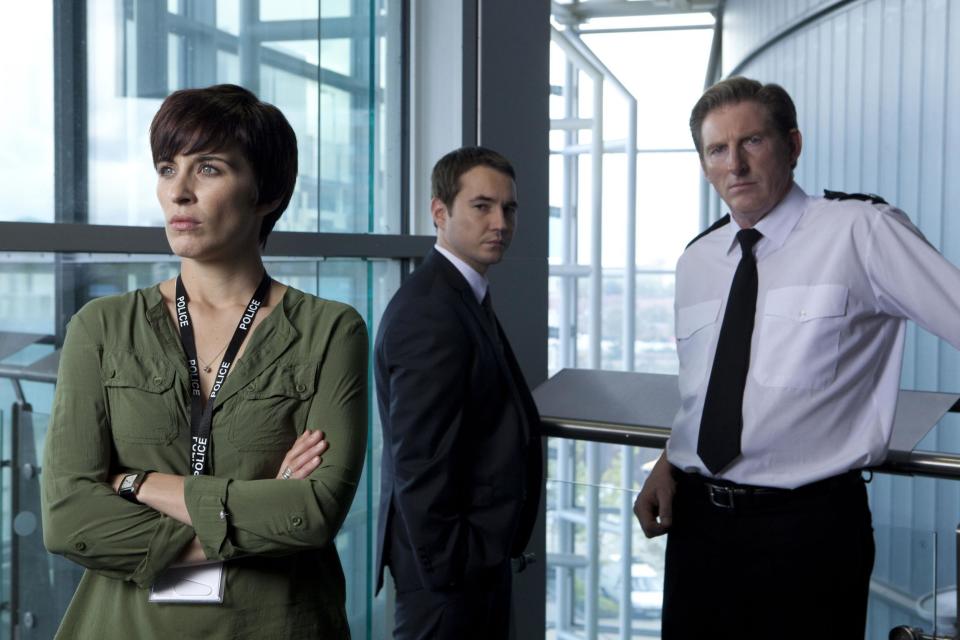Line of Duty: Why the BBC series is the saviour of British TV

The UK can be split into two camps: those who love Line of Duty and those who are yet to love Line of Duty - there can surely be no middle ground; once you've taken a bite into the BBC crime procedural, it's practically impossible to avoid being consumed by Jed Mercurio's patchwork of well-crafted thrills, engrossing characterisation and stunning reveals you'd be mistaken for assuming no longer appeared on British television.
In a time where TV schedules are so bloated with dramas that aimlessly meander their way towards an unsatisfying conclusion, Line of Duty has been providing your TV licence with proof of worth since it began humbly on BBC Two in 2012 (it's been promoted to BBC One for this Sunday's new series).
The series follows AC-12, a fictional police squad assigned with uncovering corruption within the police force, comprised of DS Steve Arnott (Scottish actor Martin Compston), DC Kate Fleming (Vicky McClure, still so memorable as This Is England's Lol) and Superintendant Ted Hastings played by acting stalwart Adrian Dunbar.
Each series places a new character front and centre of their investigation. First up, there was Lennie James' DCI Tony Gates followed by perennial scene-stealer Keeley Hawes as DC Lindsay Denton. Daniel Mays followed as Sergeant Danny Waldron (we're saying nothing).
The latest character to find themselves under investigation in this weekend's series four opener is DCI Roz Huntley played by Thandie Newton, an actor poised to cement her status as TV's most formidable following her Golden Globe-nominated performance in HBO drama Westworld just last year.
So far, so simple - only Line of Duty is anything but. When reflecting upon these past series, it's clear that Mercurio used the debut outing - the BBC's most watched in ten years - as an opportunity to set up what you thought you'd go on to know. It's only through the ensuing episodes that the creator has grown adept at smashing your expectations to pieces in a way British TV has failed to do in far too long (it's no surprise to learn he's reportedly one of few British scriptwriters to work in similar ways to US showrunners). After just 18 episodes, Mercurio has created a deep pool of characters with which to pick from, weaving together plot strands in unprecedented manners.
With each new series, Line of Duty has raised the stakes so dramatically it's a wonder how you'll make it through another episode; you'll manage - Mercurio has crafted a series that belies the lax attitude paid the way of British TV due to the onset of iPlayer and Netflix. Advice: don't skip an episode in favour of watching on your commute into work. This series deserves to be viewed with lights dimmed, phone off and your attention focused squarely on the TV in front of you. It's either that or practice stifling your screams of shock on a busy tube.
The BBC may have other immensely successful properties (Sherlock, Peaky Blinders) but regardless of their quality, they also have their naysayers, perhaps due to the former's thinly-veiled attempts to appeal so desperately to US audiences and the latter's refusal to refine for mass appeal. Line of Duty is that rarity - a show watched by the masses without ever preaching to them. Four series in and Line of Duty is dishing out old-fashioned thrills in trail-blazing ways while remaining distinctly British. For once, we may even be in safer enough hands to get a satisfying conclusion - let's just hope we have another few years of excellence first.
Line of Duty returns this Sunday 26 March at 9pm on BBC One. The first three seasons can be viewed on Netflix.

 Yahoo News
Yahoo News 